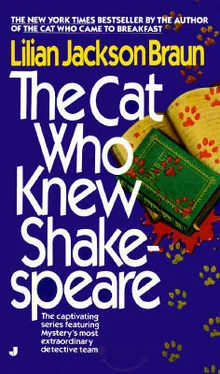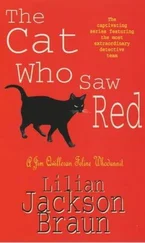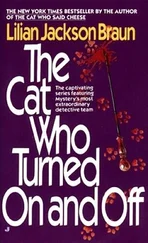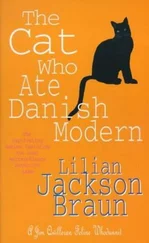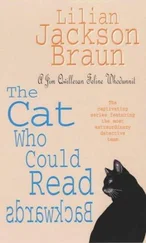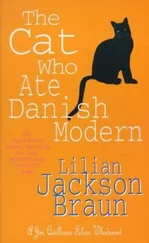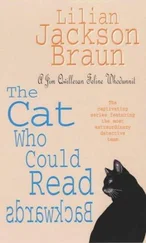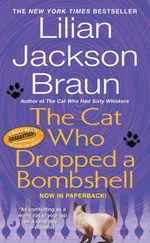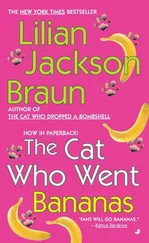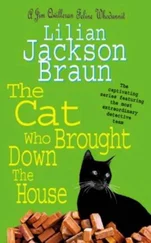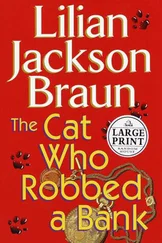Lilian Braun - The Cat Who Knew Shakespeare
Здесь есть возможность читать онлайн «Lilian Braun - The Cat Who Knew Shakespeare» весь текст электронной книги совершенно бесплатно (целиком полную версию без сокращений). В некоторых случаях можно слушать аудио, скачать через торрент в формате fb2 и присутствует краткое содержание. Жанр: Классический детектив, на английском языке. Описание произведения, (предисловие) а так же отзывы посетителей доступны на портале библиотеки ЛибКат.
- Название:The Cat Who Knew Shakespeare
- Автор:
- Жанр:
- Год:неизвестен
- ISBN:нет данных
- Рейтинг книги:4 / 5. Голосов: 1
-
Избранное:Добавить в избранное
- Отзывы:
-
Ваша оценка:
- 80
- 1
- 2
- 3
- 4
- 5
The Cat Who Knew Shakespeare: краткое содержание, описание и аннотация
Предлагаем к чтению аннотацию, описание, краткое содержание или предисловие (зависит от того, что написал сам автор книги «The Cat Who Knew Shakespeare»). Если вы не нашли необходимую информацию о книге — напишите в комментариях, мы постараемся отыскать её.
The Cat Who Knew Shakespeare — читать онлайн бесплатно полную книгу (весь текст) целиком
Ниже представлен текст книги, разбитый по страницам. Система сохранения места последней прочитанной страницы, позволяет с удобством читать онлайн бесплатно книгу «The Cat Who Knew Shakespeare», без необходимости каждый раз заново искать на чём Вы остановились. Поставьте закладку, и сможете в любой момент перейти на страницу, на которой закончили чтение.
Интервал:
Закладка:
"Perhaps he had some urgent errand to do."
"Then why did he go out the washroom window? And why did he take his knives? I see what it's all about, Qwill — the same old shaft for big-hearted Hixie. If Tony planned to come back, he wouldn't have taken his knives. You know how chefs are about their knives. They practically sleep with them."
"Did anything unusual happen to cause his quick exit?" Hixie frowned at her glass of Campari before answering.
"Well, about eleven o'clock we were setting up for lunch, and a man hammered on the door. It was locked, and one of the waitresses went to see what he wanted. He asked for Antoine Delapierre. She told him we had no one by that name, but he barged right in. I was folding napkins at the serving station, and I could tell right away he wasn't just another potato chip salesman. He looked cold and determined."
"Was he wearing a shearling car coat and rabbit-fur hat?"
"Something like that. Anyway, I asked what he wanted, and he said he was a friend of Antoine Delapierre. Tony heard it, grabbed his knives, and bolted into the employees' washroom. That's the last we saw of him. He left the window open and blazed away in my car! Why did I ever give that jerk a duplicate set of keys?"
Because he was tall, blond, and very good-looking, Qwilleran thought. He felt sorry for her. Hixie, the born loser, had lost out again. But this time she wasn't weeping; she was furious.
"Then Tony Peters wasn't his real name?" he asked. "A lot of people change their names for business purposes," she said casually, but her eyes were shifting nervously.
"Do you know what the incident was all about?"
"I haven't the foggiest idea. When the man walked into the kitchen, I got huffy and ordered him out."
Qwilleran refrained from pursuing the conversation. Sooner or later Hixie would blurt out the truth. He contemplated the new development with some satisfaction. His suspicion had checked out; the stranger in Pickax was actually an investigator.
Meanwhile, he had to go home and dress for dinner at Polly Duncan's cottage on MacGregor Road. Roast beef and Yorkshire pudding!
Mrs. Cobb was busy in the kitchen, baking hazelnut jumbles. "Do you think you should drive out in the country, Mr. Q?" she said. "They mentioned storm warnings on the radio."
"They mentioned storm warnings on the radio yesterday, and nothing happened. I think their computer is malfunctioning. They've been reading last year's weather predictions all month. So there's nothing to worry about."
He took a handful of hazelnut jumbles and went looking for the Siamese. He made it a point to say goodbye to them whenever he left the house for a few hours — another of Lori Bamba's recommendations.
The cats were not in the library, but a copy of The Tempest lay on the floor beneath the bust of Shakespeare. It gave Qwilleran pause, but only for a moment. Koko had pulled out that threatening title once before, and there had been no stormy weather. Senior Goodwinter had crashed into the old plank bridge, but the weather remained fine.
Qwilleran headed north. It was cold, and there was a high wind, but he was wearing his suede car coat with beaver collar, a trooper's hat in the same fur, a wool shirt in the Mackintosh tartan, hunting boots, fur-lined choppers, and, of course, the long red underwear that was standard equipment in Moose County.
The sky was overcast, and the wind whistled, but his heart was light and his mind was fired with ambition. After this evening he would plunge into the writing of the book he had neglected; it would please Polly to know he was writing again.
Her invitation to dinner was auspicious; it meant, he hoped, that she was relaxing the mystifying behavior that kept him at arm's length. He thought he had discovered the reason for her reserve. At a recent meeting of the library board a grant from the Klingenschoen Fund was allocated to the purchase of books, video equipment, and a new furnace — not a dollar for personnel. Furthermore, he was appalled to learn how little the head librarian was paid. Polly's tiny cottage, old car, and limited wardrobe all suggested straitened circumstances. Qwilleran knew her to be a proud woman; did the discrepancy in their financial status embarrass her? He knew — and she undoubtedly knew — that the town gossips would enjoy labeling the head librarian a gold digger.
With these thoughts running through his mind as he drove, he hardly noticed the minuscule dots of white on his wind- shield. A little farther on, large snowflakes in crystalline designs reminded him of a childhood thrill — catching them on his tongue. Soon a light dusting of snow was visible on the pavement, and Qwilleran slowed his speed to allow for slippery patches.
By the time he turned off the main highway onto MacGregor Road, there was a veil of white over fields and evergreens — a beautiful sight, although swirling snow was obscuring his vision. Dusk seemed to be falling early. He was now traveling east, and the snow was whipping against the windshield fast enough to render the wipers ineffective. It was just a snow squall, he told himself. It wouldn't last long. He drove slowly and carefully.
Polly's house, he remembered from his previous, surreptitious visit, was three miles from the main highway — two miles of pavement, then a jog in the road, and a mile of gravel. There were no other cars in sight, and he was now driving through a tunnel of white — dense white. He hoped he could stay on the pavement; there were no tire tracks to follow. No one had passed that way since the snow had started to fall. Crossroads were indistinguishable from open fields.
Suddenly something loomed up in front of his car, and he stopped just before plunging into underbrush. He had reached the jog in the road. Now he had to turn left for a short distance and then turn right onto the unimproved continuation of MacGregor Road. He made several attempts before finding the actual turn. After that he knew it would be clear sailing — just a mile to the two rural mailboxes, MacGregor and Duncan. He checked the odometer.
The problem was to stay on the road; on each side of the roadbed would be the inevitable drainage ditch. The windshield wipers, though working furiously, were useless against the onslaught of snow. He was driving through a white blanket. The hood of the car was invisible. At least he didn't have to worry about deer; they would be driven to cover. He had learned that much from Hackpole. But he had no time to think about Hackpole, or even Polly. The problem was to drive in a straight line while blinded by snow.
Again a clump of vegetation loomed up ahead. He was off the road! Turning the wheel, he went into a skid. He babied it, but the car was sliding sideways. It was sliding down a slope, and it came to a stop at a dangerous angle. The drainage ditch! Another degree of tilt, and the car would rollover. He turned off the ignition and sat there, surrounded on all sides by walls of white.
He knew the car would never make it out of the ditch under those slippery conditions — and from that angle — even with front-wheel drive. He considered the options. The longer he hesitated, the more the snow banked up against the windshield and side window — an opaque layer, inches thick, and gray-white in the dusk. Opening the door, he tested the terrain underfoot. Slush! It was the ditch. If he scrambled up the slope he would be on solid ground, and he could walk the rest of the way. It was now less than half a mile, he knew.
Putting on his hat, pulling down the earflaps, turning up his coat collar, tugging on the mittens, he prepared to face the elements. If he clambered up the bank and turned right, he would be headed toward the farm. He would have to proceed on blind faith. In the enveloping blizzard there was no sense of direction; the wind was hurling snow from all points of the compass.
Читать дальшеИнтервал:
Закладка:
Похожие книги на «The Cat Who Knew Shakespeare»
Представляем Вашему вниманию похожие книги на «The Cat Who Knew Shakespeare» списком для выбора. Мы отобрали схожую по названию и смыслу литературу в надежде предоставить читателям больше вариантов отыскать новые, интересные, ещё непрочитанные произведения.
Обсуждение, отзывы о книге «The Cat Who Knew Shakespeare» и просто собственные мнения читателей. Оставьте ваши комментарии, напишите, что Вы думаете о произведении, его смысле или главных героях. Укажите что конкретно понравилось, а что нет, и почему Вы так считаете.
